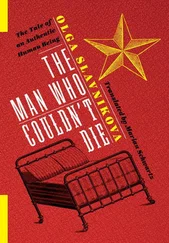I caught up with him just as we came upon a group of lunatics out for their daily walk. Still clad in their same worn calico dresses, each woman now had a woollen shawl and, bizarrely, a straw hat, such as you might wear on a day out on Coney Island, making the overall impression strangely comic. The women were lined up in twos, guarded by attendants.
As they passed us, a shiver of horror crept through me. My gaze was met with vacant eyes and inexpressive faces, while many of them jabbered away, seemingly holding conversations with themselves, or sometimes leaning toward their partners and talking animatedly, although in most cases the other woman appeared not to be listening, either staring mutely ahead or muttering away herself, lost in a conversation of her own. I saw too that these women were under restraint. Wide leather belts were locked around their waists and attached to a long cable rope, so that they were all linked to one another, a sight that reminded me of old illustrations I had seen of slaves being led from their African villages to the slavers’ ships. I did a rough count and estimated there must have been around twenty women roped together in this fashion.
We stood aside to let them pass and I could see many of them had dirty noses, unkempt hair and grimy skin. My own nostrils attested that they were not clean, whereas I hadn’t noticed any unpleasant smells amongst the other women in the day room and was surprised that there should be any now we were in the fresh air.
‘Who are these women?’ I asked Morgan.
‘They’re the most violent on the island,’ he replied. ‘They are kept on the third floor, separate from the rest. They are all extremely disturbed and their presence would not be compatible with the treatment of the others.’
As if to verify this, one of them began to yell, which sparked off a reaction in another, who commenced to sing, in a strangely beautiful and haunting voice, the old song ‘Barbara Allen’, and for a moment it felt as if the sadness of the song was a reflection of her state, but then others broke out in a discordant caterwauling, raucous stuff such as you hear in low taverns, and one woman added to the cacophony by mumbling prayers, while others stuck to simple cursing, casting oaths defiantly into the air seemingly at nothing or no one in particular, but to the world in general and what it had done to them.
The women were forced to keep to the footpaths and I thought how they must have longed to kick off their shoes and run barefoot across the soft, elegantly coiffed grass. Every so often one of them would bend and pick up something, a leaf or nut or fallen twig, but immediately an attendant would be upon her and force her to discard it.
‘They are not allowed possessions,’ Morgan observed to me.
Possessions! What kind of hell was this where a fallen leaf was counted a possession? I could not help but be reminded of Lear , in which I had once played Edmund – who else? – and the old king’s speech: ‘Oh, reason not the need, our basest beggars are in the poorest thing superfluous.’
Following in the wake of this miserable spectacle of humanity, we passed a small pavilion, no doubt a vestige from the days when the asylum had been a private residence. On the wall was painted in elegant script ‘While I live, I hope.’ I shook my head at the irony of this; you only had to look at these poor women shuffling along to see there was no truth in it.
We wandered the grounds for the best part of an hour, during which I had several uncomfortable moments, as every now and then Morgan attempted to quiz me on my ideas for the treatment of lunatics, while at the same time ridiculing them without managing to convey any clue as to what these ideas actually were. I began to feel quite aggrieved that he should patronise me so and frustrated that I could not produce any counter-argument, and sensed myself losing control, which of course would have ruined everything. I held my tongue only with the greatest difficulty.
Morgan pulled out his watch. ‘Dinner in six minutes. You may as well observe the dining hall.’
Back inside the hospital we looked on as the more violent inmates, still in twos, were marched through a doorway in shambling parody of a military manoeuvre. They were taken off to a separate dining room, Morgan told me, for they needed careful supervision while they ate. After they had gone, I followed him into the long, narrow dining hall where the rest of the patients were standing, behind backless benches on either side of plain deal tables that ran almost the entire length of the hall’s centre. At a word from one of the attendants the inmates began to scramble over the benches and take their places upon them in such a disorderly fashion I couldn’t help thinking of pigs at the trough.
All along the tables were bowls filled with a dirty-looking liquid that Morgan assured me was tea. By each was a piece of bread, cut thick and buttered. Beside that was a small saucer that, as I peered more closely, proved to contain prunes. I counted five on each, no more no less. As I watched, one woman grabbed several saucers, one after the other, and emptied the prunes into her own. Then, holding tight to her own bowl of tea, she stole that of the woman next to her and gulped it down.
Morgan watched and, when I glanced at him, lifted his eyebrow and said, ‘Survival of the fittest,’ and smiled.
Looking around the tables, I saw women snatching other people’s bread and others left with nothing at all. All this Morgan viewed with such complete indifference that I began to despair of humanity, until I noticed one inmate, a young woman, not much more than a girl really, with long dark hair that fell down over her face, half veiling it, tear her own slice of bread in two and pass one portion to the woman next to her, who had been robbed of her own and who accepted it eagerly, showing her gratitude with a smile, the first I had seen in this place. At this moment, as if feeling the weight of my eyes upon her, the girl who had given away her own bread lifted her head and stared straight at me with a look that chilled me to the bone. It had a knowingness in it, as if she saw right through me and recognised what I was and observed something in me that enabled her to claim kinship. I was only able to hold her gaze for a short time before I had to look away. A minute or so later, I glanced back at her and, finding her eyes still fastened upon me, had to turn away and walk to the other end of the room.
While all this scramble for food was going on, attendants prowled up and down behind the women, not bothering to stop the petty larcenies, but tossing an extra slice of bread here and there when they saw someone going without.
When the bread and prunes had been consumed, which in truth didn’t take long, for there was not much of it and the women were obviously ravenous, the attendants fetched large metal cans from which they dispensed onto each of the women’s now empty plates a small lump of grey meat, fatty and unappetising, and a single boiled potato. You’d have thought a dog would have baulked at it, and indeed I don’t think I ever saw a dog so poorly fed, but the women fell upon it as if it was the most sumptuous feast. A few, I noticed, grimaced as they bit into the meat, showing it to be as rancid as it looked, but managed to swallow it nonetheless. Everyone else devoured it as fast as they could chew it – and it was evidently so tough, this was no easy thing – and, when it and the potato were done, looked balefully at their plates as though they could not believe the meagre offering was already gone.
Afterwards Morgan and I had our dinner in the doctors’ dining room. Although the dining table would have accommodated six people, there were only the two of us. I asked how many other physicians there were, at which Morgan shrugged. ‘We do not have unlimited resources, you know. The state does not set great store on treating the mentally ill. We cannot afford to employ more staff or anyone more experienced than you. Which is fortunate for you. Normally someone just starting out upon a career as a psychiatric doctor might wait years for an opportunity such as you have here.’
Читать дальше












